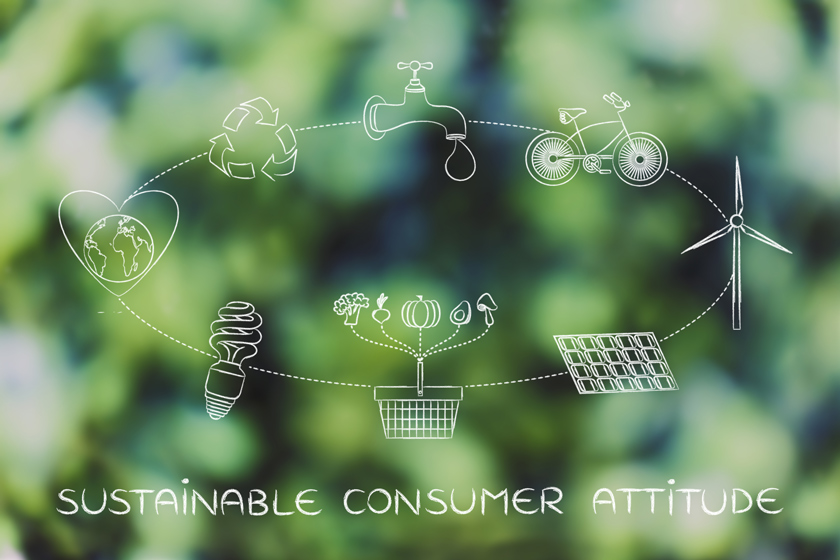In today’s fast-paced and interconnected world, the concept of sustainability has surged to the forefront of global consciousness. As environmental concerns continue to mount, consumers are increasingly seeking out eco-friendly products and demanding greater corporate responsibility. This shift in consumer preferences has led to a burgeoning interest in sustainable marketing practices that not only promote environmentally conscious brands but also inspire positive behavioral change.
Sustainable marketing is rapidly gaining momentum as a powerful strategy for businesses to navigate the perplexing landscape of eco-conscious consumerism. By embracing sustainability and integrating it into the very fabric of their marketing efforts, brands can resonate with their audience in a meaningful and impactful way. This blog post will delve into the growing trend of sustainable marketing, highlighting its importance, and providing actionable insights for brands seeking to adopt this approach.
What is Sustainable Marketing?
At its core, sustainable marketing is a multidimensional approach that intertwines environmental, social, and economic considerations in marketing strategies. This innovative practice focuses on creating long-term value for both businesses and consumers while reducing negative impacts on the planet and society. It transcends the traditional boundaries of marketing, pushing brands to be more transparent, authentic, and ethically responsible. By promoting products and services that prioritize sustainability, businesses can foster a meaningful connection with eco-conscious consumers, setting themselves apart in a highly competitive marketplace.

The goals of sustainable marketing go beyond simply bolstering a brand’s image; they encompass fostering genuine change in consumer behavior, driving awareness of environmental issues, and ultimately contributing to a more sustainable future. When executed effectively, sustainable marketing can yield numerous benefits, from increased customer loyalty and trust to a heightened competitive edge. In the following sections, we will explore the key components of sustainable marketing and offer practical guidance for brands looking to embrace this powerful, purpose-driven strategy.
Incorporating Sustainability into Your Marketing Strategy
Embarking on the journey towards sustainable marketing can be a complex and exhilarating process, requiring a deep dive into the current state of your marketing practices. Begin by assessing the sustainability footprint of your existing strategy, scrutinizing each aspect for potential improvement and areas of opportunity. Consider your brand’s messaging, target audience, and channels of communication, as well as the environmental and social impacts of your marketing materials and campaigns. By taking stock of your current efforts, you can identify areas where sustainability can be seamlessly woven into your marketing strategy, paving the way for a more eco-friendly and socially responsible brand image.
Once you have a thorough understanding of your marketing landscape, it’s time to create a sustainability-focused marketing plan that outlines clear goals, objectives, and actionable steps. This plan should encompass a holistic approach, integrating sustainable practices across all marketing touchpoints—from product development and packaging to advertising and customer engagement. By establishing a cohesive and comprehensive plan, your brand can confidently navigate the intricate world of sustainable marketing, forging lasting connections with eco-conscious consumers and making a tangible impact on the environment and society at large.
Key Components of Sustainable Marketing
The bedrock of sustainable marketing lies in transparent communication and messaging, which enables brands to forge genuine connections with their audience. By openly sharing your sustainability journey, including both accomplishments and challenges, you foster a sense of trust and credibility. Authenticity is equally crucial; ensure that your brand purpose aligns with your sustainable marketing efforts, and consistently demonstrate your commitment to sustainability through tangible actions and initiatives.
Another integral aspect of sustainable marketing is the focus on ethical and eco-friendly sourcing and production. Consumers are increasingly concerned about the environmental and social impacts of the products they purchase. By prioritizing sustainable materials, minimizing waste, and advocating for recycling, your brand can resonate with eco-conscious consumers while simultaneously mitigating its ecological footprint. Additionally, supporting local communities and social initiatives can further bolster your brand’s commitment to sustainability, creating a positive ripple effect that extends far beyond your immediate marketing efforts.
Tips for Implementing a Sustainable Marketing Campaign
To effectively implement a sustainable marketing campaign, start by educating and engaging your audience. Share compelling stories, insights, and facts about the environmental and social issues your brand is addressing, inspiring your audience to embrace sustainable behaviors and choices. Utilize various formats such as blog posts, videos, and social media updates to reach a wider audience and maintain their interest in your sustainable journey.
Collaboration is key in sustainable marketing; seek out partnerships with like-minded influencers, organizations, and suppliers who share your commitment to sustainability. By working together, you can amplify your message, broaden your reach, and create a lasting impact. Furthermore, leverage digital marketing channels to minimize the environmental impact of your campaigns, while also taking advantage of the diverse range of platforms available to connect with your target audience. Finally, track and measure the success of your sustainable marketing efforts, continuously refining your strategy to ensure maximum effectiveness and long-term growth.
Embracing a Greener Tomorrow
The rise of sustainable marketing signifies a profound shift in the way businesses connect with consumers and address pressing environmental and social concerns. By embracing sustainability as a core element of their marketing strategies, brands can not only cater to the evolving preferences of eco-conscious consumers but also play an instrumental role in shaping a greener, more responsible future. As we move forward, it is essential for brands to recognize the long-term benefits and competitive advantages of sustainable marketing, seizing opportunities for growth and innovation while also fostering positive change in the world.
In conclusion, sustainable marketing is more than just a fleeting trend; it is an approach that demands continuous adaptation, learning, and commitment from brands eager to make a lasting impact. By harnessing the power of transparency, authenticity, and collaboration, businesses can successfully navigate the complex landscape of sustainable marketing, nurturing strong relationships with their audience while contributing to a better, more sustainable future for all.


